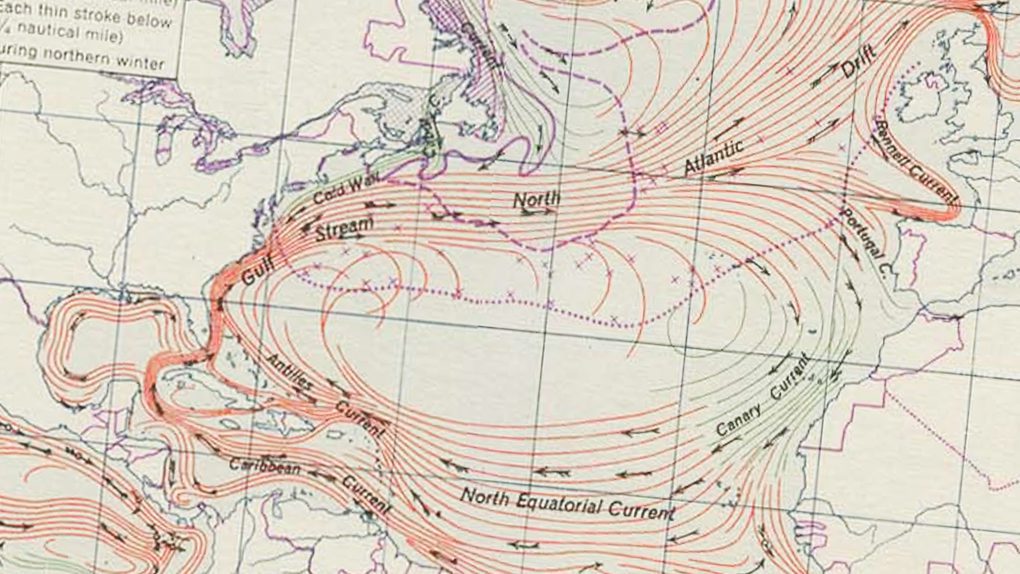
Oceanography Otherwise: Marine Methods in the Environmental Humanities
Harvard University Alison Glassie
March 30, 2023 · 12:00 pm—1:00 pm · Room 002, Robertson Hall
Blue Lab, an environmental research, art and storytelling group

In The Physical Geography of the Sea and its Meteorology (1855), Matthew Fontaine Maury blames a major ocean current for the commercial decline of the U.S. South. “The Gulf Stream, the water-thermometer, and the improvements in navigation,” he writes, “changed the [status] of Charleston — the great Southern emporium of the times — removing it from its position as a half-way house and placing it in the category of an outside station” (79-80). Although this claim might seem counterintuitive coming from the pioneering scientist who introduced the word “oceanography” into the scientific lexicon in 1859, Maury’s biography renders it unsurprising. In 1861, at the outbreak of the U.S. Civil War, this “pathfinder of the seas” and “father of oceanography” would resign his commission as superintendent of the U.S. Naval Observatory and Hydrographic Office and join the Confederate navy (Grady 2015; Hardy and Rozwadowski 2020).
Today, the ocean’s thermohaline circulation, a heat exchange system in which Maury’s much-maligned Gulf Stream plays an important role, is destabilizing due to climate change. Scientists and humanists alike are fathoming the ocean’s centrality to the historical structures of oppression whose legacies now contribute to its biophysical degradation. But oceanography — a portmanteau of the Greek words for ocean and writing — remains “a discipline rarely engaged by humanities scholars” (Steinberg 2013). My talk asks why.
First, I follow the long wakes of imperial voyagers including early modern Portuguese mariners and Maury himself through scientific and cultural understandings of the ocean. This wake extends to the oceanic turn, a scholarly current in the humanities whose very name is a near-literal, if inadvertent translation of the Portuguese imperial volta do mar. From here, I consider the “Afrofuturist marine biology” (Jue) of Nnedi Okorafor’s novel Lagoon (2015) alongside the civic practices of contemporary marine biologists and archaeologists who are transforming science communication and fieldwork in light of racial justice. By bringing literary studies into conversation with the multidisciplinary scientific study of the global ocean, I hope to prompt a conversation on method in environmental humanities that will help us all, whatever our home fields happen to be, imagine and inhabit more just ocean worlds “otherwise.”
Ali Glassie is a lecturer on history and literature at Harvard University, working at the intersection of comparative literature, environmental humanities, and ocean history. Her current book project, Atlantic Shapeshifters: Sea Literature’s Fluid Forms, uses 20th century and contemporary literature in English, Spanish, and Portuguese to recover and center gendered and racialized experiences with the ocean. In doing so, the book draws on her training in marine affairs and her professional experience at sea. Ali’s writing appears in ISLE: Interdisciplinary Studies in Literature and Environment; Novel: A Forum on Fiction; Coriolis, and sx/salon, a literary platform of Small Axe. She has also published collaborative work on water justice in Bioscience and covered transatlantic yacht racing for Blue Water Sailing.
Co-sponsored by the Effron Center for the Study of America, High Meadows Environmental Institute, and the English Department.















